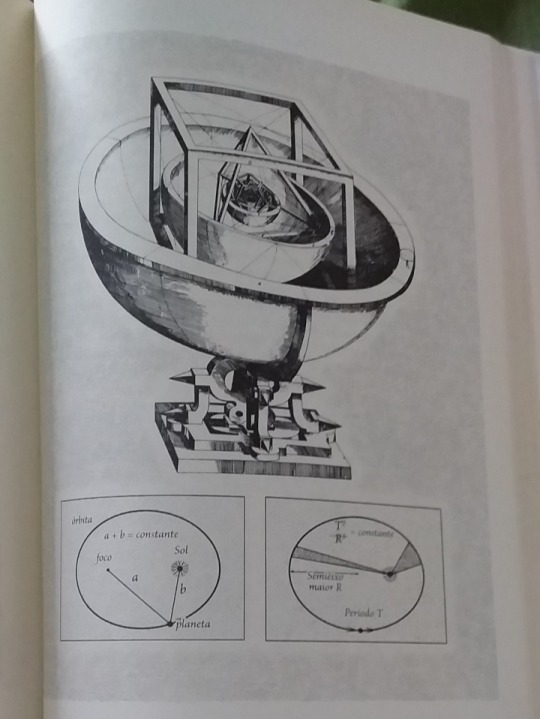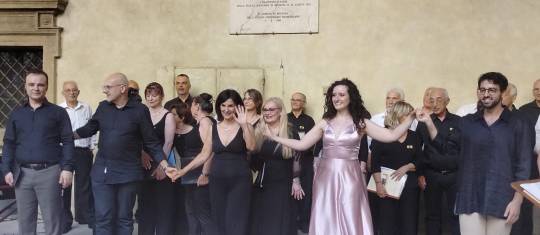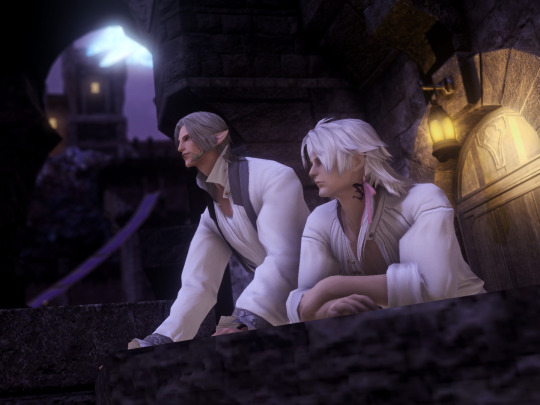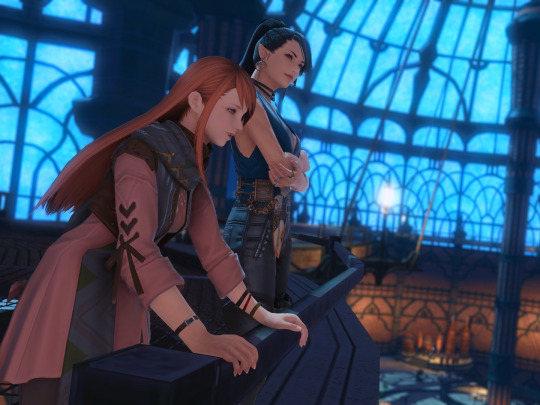#quadrivium
Explore tagged Tumblr posts
Text


2 notes
·
View notes
Text
Introduction to Sacred Geometry
I have been working on this post and the graphics for over a week now and I am happy to finally hit the publish button! Hope you like it! Let me know what you think in the comments!
“Greek mythology holds that our human capacity for geometric vision is a gift of the divine feminine—energetic sources of wisdom conceptualized as a lineage of goddesses. Born from primal Chaos is Gaia… She gives birth to Mnemosyne, goddess of Memory, from whose name comes “mnemonic.” The daughters of Mnemosyne are the Muses—the arts and sciences. Memory is the legacy of the sacred Earth, and the…

View On WordPress
#archeoastronomy#Circle#Dodecahedron#Egg of Life#Euclidean Geometry#Flower of Life#Fruit of Life#Hexahedron#Icosahedron#Line#Merkaba#Metatron&039;s cube#Octahedron#Platonic Solids#Point#Pythagoras#Quadrivium#Seed of Life#Sphere#Spiritual Awakening#Spirituality#Tetrahedron#Torus#tree of life#Triquetra#Vesica Piscis
0 notes
Text

French philomath Renee Des Cartes
1 note
·
View note
Text
Ensinar o que não se aprende (mais) nas escolas: A importância do Homeschooling
A base do conhecimento é eterna. Aliado com os recursos computacionais e uso atento da inteligência artificial, o Trivium e Quatrivium deveria fazer parte de todos que buscam a verdadeira expansãããão da conscieeeênciiiiaaaa.
A educação doméstica, ou home schooling, é importante porque oferece uma abordagem personalizada e flexível para o ensino, permitindo que os pais ou responsáveis criem um ambiente de aprendizagem que se adapte às necessidades únicas de cada criança e pode oferecer uma abordagem alternativa à educação massificada promovida pelo estado e assim, NÃO serem (facilmente) doutrinados. Podemos incluir…

View On WordPress
#ambiente de aprendizagem#artes liberais#educação doméstica#ensino personalizado#expansão da consciência.#formação cultural#formação intelectual#habilidades científicas#habilidades matemáticas#homeschooling#Inteligência Artificial#pensamento crítico#Quadrivium#raciocínio lógico#Trivium
1 note
·
View note
Text
Un bel concerto di canto nel cortile di Palazzo d'Accursio
Ieri pomeriggio, chi avesse varcato il portone di palazzo d’Accursio, sede dal 1336 del governo della città di Bologna dal secolo XIV, lasciando il bailamme di piazza Maggiore, sarebbe entrato in un’oasi di pace creata dal piacevole concerto di brani lirici eseguiti congiuntamente dalla Corale Vincenzo Bellini di Budrio e dalla Corale Quadrivium di Medicina, diretti dalla maestra Paola Del Verme,…

View On WordPress
#Alessandro Granda#Andrea Mongelli#Annalisa Monaco#Anselmo Colzani#arlo Colombara#Arrigo Boito#Aureliano Pertile#Bologna#Budrio#Carlo Colombara#Claudia Marchi#Corale Quadrivium#Corale Vincenzo Bellini#Dave Monaco#Ferruccio Mazzoli#Filippo Giovagnorio#Franco Bordoni#Franco Ghione#Fulvio Massa#Gaetano Donizetti#Giacomo Puccini#Gioachino Rossini#Giuseppe Manacchini#Giuseppe Verdi#I Lombardi alla Prima Crociata#Il Barbiere di Siviglia#L&039;Elisir d&039;amore#La forza del destino#La traviata#Lina Pagliughi
0 notes
Text
A List of "Poetic" Words
to include in your next poem (pt. 2 because there are a lot of them)
Abyssopelagic: The deep regions of the ocean (or the “abyss”), as in, the “abyssopelagic zone.”
Acersecomicke: One whose hair was never cut.
Agathokakological: Composed of both good and evil.
Bêtise: An act of foolishness or stupidity.
Cachinnate: To laugh loudly or immoderately
Cacography: Bad handwriting.
Deipnosophist: A person skilled in table talk
Diaphanous: Sheer and light; almost transparent; or delicately hazy.
Incendiary: Flammable; something that incites agitation or sedition.
Jentacular: Pertaining to breakfast.
Lagniappe: A gift, usually monetary like a tip, and you might still hear it in areas of southern Louisiana and southeastern Texas.
Languor: Lack of energy or vitality, or, more concisely, sluggishness or laziness.
Limerence: An old-fashioned way to describe intense feelings of obsession or infatuation with another person.
Matutinal: Of, relating to, or occurring in the morning.
Noctivagant: Going about in the night; night-wandering.
Opsimath: A person who begins to learn late in life.
Patrizate: To imitate one's father or forebears.
Peccability: Capability of sinning.
Pot-valiant: Bold or courageous under the influence of alcoholic drink.
Quadrivium: The intersection of four roads. The word was adapted in medieval times to refer to the teaching of four essential subjects (arithmetic, geometry, astronomy, and music).
Recogitate: To think over again.
Redame: To love in return.
Scripturient: Having a strong urge to write.
Sibilance: The distinctive hiss-like sound made by the letter S, or comparable sounds like a soft C.
Solivagant: Rambling alone, marked by solitary wandering.
If any of these words make it into your poem/story, please tag me or leave me a link in the replies. I'd love to read them!
Sources: 1 2 ⚜ More: Word Lists ⚜ Writing Resources PDFs
#writing#writing prompt#poetry#writers on tumblr#writeblr#poets on tumblr#literature#words#lit#spilled ink#langblr#studyblr#word list
160 notes
·
View notes
Note
So this is pertaining to my story Meta Assassins on AO3. Summary to follow so you can have context:
The very franchise we know exists as games within the games themselves and Desmond Miles isn't sure how to feel about this. He owns the first five games and soon Black Flag drops along with a new never-released game. It is there that Desmond meets Altair, Malik, Kadar, Ezio, and Federico. Desmond finds solace in the games given he now works at a gas station and has a crappy boss. While working one day he unknowingly meets Giovanni Auditore who gives him his contact information because he thinks Desmond is hard working and dedicated. Assassin’s Creed: Quadrivium, a MMORPG, drops and that's when he starts to figure things out. He eventually wants to go to Italy to visit Ezio and Federico during the winter holiday, which he does. Currently he is hanging out with Claudia Auditore at the local market.
Eventually I will have Desmond get hurt on the job at the gas station. A wet floor he didn't see, and there was no wet floor sign. He was carrying some heavy product that landed on his chest and left leg pinning him to the ground. His friends find it odd that he doesn't join them that night, but eventually a week goes by before they decide to go to New York to find Desmond. Which is how they discover the poor conditions Desmond has been living in. I am just stuck on how to write the accident scene and the twist of Desmond being fired for having the accident. Typically I have Kadar be the one that kicks them in the pants, cause I like to think he would have studied people's behaviors which would be useful as an assassin, but considering that I now have him dating Claudia, I could have her bugging Federico and Ezio about it since it's very uncharacteristic for Desmond to not answer her for more than a day (he did that once, called her to explain he was exhausted and apologized, he was yawning the entire time which made her realize he works himself to the bone.
Anyway, take your time and get to this when you can. Though I look forward to it, cause honestly I forget what I have asked so it's a nice surprise treat when you answer, like "Oh my Goth I asked that?" Thank you for all these lovely ask and answers. Safety and Peace upon you my friend.
Thank you and upon you as well, friend! Here's the link to the fanfic for those curious: Meta Assassins, please give it a try if you're interested and leave some love :)
If you want to keep it a suspense, one way would be to not write the accident scene at first. Shift the narration to Claudia or Federico or even Ezio and how they haven’t heard about Desmond for a while. Create a mini-mystery of some kind perhaps?
Then when they decided to fly to New York, that’s when the narration shifts back to Desmond. If you’re having problem writing the accident itself, you can set the narration to the same day that they set off to check Desmond and make it something that Desmond internally muses about. Focus the narration on what has happened after he was fired and how he’s holding up. Depending on how long it took for them to decide to fly to America, maybe the timeline was long enough that he needed to sell some things to pay the bills which included his computer and phone. Maybe he had to give up on paying his internet provider to pay the other bills using what he had saved up. Those would be valid reasons why he couldn’t say anything more to his friends.
Now, if you truly want the accident to be a central scene…
Well…
I’ve been clumsy since I was a kid (hence why I had to get a tetanus shot this month) so I can tell you that it might seemed ridiculous but one can do a lot of damage thanks to flailing limbs while ‘sliding’. He doesn’t have to be carrying the heavy product. He could be on his break and leaving the gas station when he skids across the floor and grabbed the first thing he could, which turned out to be the nozzle attached to a nearby car. The nozzle goes flying off the car and still dispensing gas and Desmond smacks his head hard against the car and his head bleeds.
Head bleeding tend to be heavy so they had to call 911 because they freaked out from seeing all the blood.
Of course, Desmond has no health insurance so now he has medical bills to pay for a head injury that he could have probably (probably) treated himself and, when he returned to his work, his boss fires him and tells him he has to pay for the wasted gas. And, because he was on his ‘break’ when it happened, his accident wasn’t covered by his ‘previous’ job (to be fair, Desmond is pretty sure that was just an excuse to not pay him squat).
Hope this helps and, even if you don’t use this, this gives you an idea of how to write this scene :)
(Also, instead of the gas, gas stations usually have convenient stores and you can make Desmond have his accident there where he grabs a shelf to stop his fall, breaks his ankle and crashes lots of merchandises that he has to pay for)
#the setup so many countries have concerning healthcare makes me understand why so many of us have sugar daddy kinks#i had to pay for my tetanus shot in a government funded hospital#the municipal hospital in my previous home gave me rabies vaccine for free XD#how clumsy am i?#i banged my elbow against the door knob and scratched myself this week XD#that's how clumsy i can be#anyway#assassin's creed#desmond miles#ask and answer#ezio auditore#giovanni auditore#federico auditore#claudia auditore#kadar al sayf#malik al sayf#altaïr ibn la'ahad
26 notes
·
View notes
Note
damn your anons don't even know that one more ivium than a trivium is called a quadrivium. (i think they were medieval university syllabi or something)
Louder for the people in the back!
27 notes
·
View notes
Text

Trivium: Gramática, Dialética (Lógica), Retórica

Quadrivium: Aritmética, Geometria, Música, Cosmologia (Astrologia/Astronomia)
2 notes
·
View notes
Text


FEBHYURARY XXV: EMOTE
The night grow long in Mor Dhona when they return from the First. He’d like to chalk it up to his perception, but as time moves differently on the Source, he can’t be for sure. There are many things to adjust to here. The lethargy, the atrophy, all the small ways his body refuses to work after months of lying comatose. Urianger faces the same trials, though it is with no small amount of annoyance that he notices his symptoms are far worse. Krile insists they take it slow. They cannot push themselves. He knows this, and yet it does little to ease his restlessness. More than once, he and Urianger find themselves on the balcony overlooking the plaza. He takes up his customary stance—or, an adjustment of it, since leaning with his back against the wall would likely lead to a collapse—and rests his crossed arms on the railing. Together they watch the aetheryte glow and turn, speaking idly of small things while the crowd hustles and bustles. Aureia is not here. She returned weeks ago to Norvrandt to assist Ryne. They planned to strike out to the Empty together, to finish what was started. He wonders where they must be, what they are doing. They had gotten into the habit of climbing the walkways above the Quadrivium, observing the vibrant greenery and spiraling paths below. Is that where they are now? Perhaps. She will tell him when she returns. The separation stings. It is something he has accepted, but the reality of it still bites. He cannot complain, their time was limited on the First and he knows what it cost to see them home safely. Making his peace with it is a process, one where some days will be easier than others. And so he worries and he waits. There is naught else to be done now. Thankfully he is well-versed at waiting. He waited five years for her on Norvrandt. He can wait as long as he needs to.
#i didn't choose crossed arms and /lean as my favourite stances they chose me#aureia's been folding her arms since day 1 not my fault thancred does the same thing!!!#febhyurary#febhyurary 2024#ffxiv#ff14#final fantasy 14#gpose#gposers#thancred waters#urianger augurelt#ryne waters#ffxiv wol#wolcred#half-elezen#hyur midlander#shadowbringers#shadowbringers spoilers#aureia malathar#oc tag#myreia screenshots
31 notes
·
View notes
Text
Dandelion, in book and game canon, is noted for being a master of the seven liberal arts. For those that don't know, the liberal arts irl are: Grammar, Logic, Rhetoric, Arithmetic, Astronomy, Music and Geometry; so lets briefly breakdown what each one was back in the medieval and middle ages [since those eras are the basis for the series] and see exactly how intellectually smart Dandelion was
First we have the Trivium, which were the three basic tools of reasoning and expression and were the gateways into much higher fields of learning
Grammar: The study of written works and forms of writing, usually through memorisation and reading of classical texts. Learning and diagraming the parts of speech became common, and other language-related knowledge like spelling and vocabulary have grown out of grammar studies
Logic: The easiest way to describe this is basically philosophy - there's a lot of "discussions and investigations into truth and opinions" which would be why Dandelion has so many Thoughts about things
Rhetoric: Closely related to Logic studies, this one was about learning how to express your opinions and make clear concise arguments
Next we have the Quadrivium, which are all about maths and the traditional arts we know of
Arithmetic: The basic mathematics such as addition, subtraction, division, multiplication etc as well as mathematic notation
Music: Though less widespread now, back in the day music studies were incredibly important for students to understand and appreciate creation by learning about the various forms and instruments of music - in short, Dandelion would be able to play far more than just the lute if he wanted to
Geometry: This one would have covered everything from architecture to engineering to surveying, all of which are now their own separate disciplines of study. So, in ye olde times, Geometry used to be far more practical in application. This is why I like to joke that Dandelion is like if Shakespeare and Leonardo da Vinci were fused into one person
Astronomy: The contemplation of the heavens and humankind’s place in them received more emphasis in an era where less was known and more was imagined than today. Astronomy was at first considered essential for fields such as navigation and determining dates, but grew to include more advanced mathematics and physics studies
Plato is probably the most famous of real life masters of these arts to give an example of how impactful and important they are in our history, so Dandelion being a master of all 7 and being qualified to teach at the university itself is no small feat by any means. Intellectually speaking, Dandelion is easily one of the smartest characters in the books - but he's also impulsive, curious to a fault, tempermental and often doesn't follow his own common sense, which is why he has Geralt and the Hansa to look out for him lol
#the witcher books#dandelion#meta post#the liberal arts are fascinating to me but I'm too dumb to understand most of em lol#I'm not good with mathematics and philosophy it makes my head spin
19 notes
·
View notes
Text

On 7-11....let's not forget this auspicious moment in TIME.
117Hz is the prime resonant frequency of the King’s Chamber sarcophagus.
11.7^2 ≈ 137
1.618^(1/3) ≈ 1.17 (The Cube Root of Phi)
"The 11, due to its special relationship with the number 7, allows us to understand the geometry of the circle, since for a circle with a diameter of 7, half the circumference of that circle will be 11. In addition, its relationship with the number 3 also gives it a very special shape, as it encodes the squaring of the circle, a concept of extreme importance in the physics of Nature that includes, for example, the definition of the geometry of a rainbow and the relationship of sizes between the Earth and the Moon." – Miranda Lundy, "Sacred Number: The Secret Quality of Quantities" (Quadrivium)
Robert Edward Grant
36 notes
·
View notes
Text
Georgios Pachymeres: The Life of a Palaiologan Scholar

Georgios Pachymeres' father was part of the large group of Byzantines who fled the capital of the Eastern Roman Empire, Constantinople, after the Latin conquest of 1204 during the Fourth Crusade. He sought refuge with the Laskarid dynasty in Nicaea, one of the Byzantine successor states, where Georgios is believed to have been born around 1242. Here, the Laskarid dynasty prospered, ensuring a pleasant childhood for Georgios. In his historiographical work, nostalgia for this period often resonates in the form of criticism directed at emperor Michael VIII (r. 1261-1282), who neglected the situation in Asia Minor.
Georgios had a wealthy father who could afford to provide his son with a solid and broad education. When Michael VIII recaptured Constantinople in 1261, Pachymeres followed the new emperor to the ancient capital of Byzantium. There, he continued his higher studies, although the details remain unclear. It is generally assumed that his teachers were Georgios of Cyprus and Georgios Akropolites (1217–1282). Akropolites was a gifted writer and diplomat who became a central figure in the revival of higher education in Constantinople. Pachymeres undoubtedly had much to learn from him. Akropolites was a specialist in rhetoric, the quadrivium, and philosophy—fields in which Pachymeres would later excel.
Pachymeres demonstrated an exceptionally strong knowledge of both religious and secular law, which increased his chances of securing a lucrative position within the patriarchate or the court. Indeed, he quickly found his way into imperial circles and joined the ranks of the Constantinopolitan clergy.
His ecclesiastical career began in 1265 when he was ordained as a deacon of the Hagia Sophia, the center of Orthodox faith. His intellectual abilities were clearly appreciated, as evidenced by his appointment in 1277 as didaskalos tou apostolou, a position in which he was responsible for providing commentaries on the letters of the Bible and the Acts of the Apostles. In 1285, he was appointed hieromnemon, a role that made him responsible for various ecclesiastical matters, including priestly ordinations. One of the highlights of his career was his appointment as protekdikos in the same year, an influential role within the ecclesiastical court. Additionally, he utilized his knowledge of secular law to attain the position of dikaiophylax, an imperial judge. These high-ranking positions brought him into contact with several prominent figures, including members of the imperial family, Ioannes Bekkos, Athanasios II of Alexandria, and Theodosios Prinkips.
In addition to these responsibilities, Georgios also demonstrated a remarkable talent for the liberal arts. During this time, higher education and the academic world experienced a flourishing period in the newly reconquered capital, thanks in part to the efforts of the aforementioned Akropolites. The "dark" 13th century gave way to the so-called Palaiologan Renaissance, a revival of the Greek intellectual world and the arts. A significant milestone was the reopening of the Patriarchal Academy which was closed after the Latin conquest.
In other words, Constantinople offered ample opportunities for intellectuals with pedagogical talent. That Pachymeres excelled in teaching challenging subjects is evident from his literary work, which will be discussed in part 2. He earned his living as an instructor at the renowned Patriarchal Academy. More specifically, he held the position of oikonomikos didaskalos until 1275. In this role, he earned the respect of his colleagues and students. His significant contribution to the Palaiologan Renaissance cannot be overstated.
As a professor, he taught philosophy and the quadrivium. It is possible that he also taught rhetoric, although this is not certain. The quadrivium comprised the second and final series of the septem artes liberales: geometry, music, astronomy, and arithmetic. It is often assumed that his work, the Quadrivium (see part 2), served as support for his lessons. In any case, he had a significant influence on the later study of these subjects.
During his philosophy lessons, he covered the two major traditions of antiquity: Plato and the (Neo-)Platonic tradition on one hand, and Aristotle on the other. His autograph manuscripts reveal a particular interest in relatively rare commentaries on Plato and Neo-Platonic scholars. For his courses on Aristotle, he wrote an extensive summary of Aristotle's works in 12 books, the Philosophia (see part 2). He held immense admiration for Aristotle.
According to Pachymeres, Aristotle's genius lay in his apparent anticipation of many Christian doctrines. Specialist Pantelis Golitsis situates this idea within the context of the polemic over the question of how best to reach God.
The monastic movement, which gathered around Patriarch Athanasios (r. 1289-1293; 1303-1309), believed that a monastic lifestyle was the only correct way to draw closer to God. These fundamentalists sought to impose this idea on the rest of the clergy. This movement, better known as Hesychasm, partly originated in the theology of the famous Gregorios Palamas. They stubbornly opposed any philosophical rationalism in the approach to God.
Pachymeres, on the other hand, believed in an alternative path to a divine experience: through philosophy. Understanding God's creation was also a legitimate form of devotion. In this way, he sought to give the ancient philosophy, which he cherished, a more accepted place within Byzantine society.
According to Arnakis, this attitude of Pachymeres is more understandable in the context of the new proto-nationalist trend among the Byzantines, where they no longer considered themselves solely as Romans, but also as Hellēnes, without the term necessarily carrying a pejorative or pagan connotation. The intellectual elite of Constantinople was well aware of the significant contributions of their fellow speakers to world history and was proud of this. Pachymeres’ love for and teaching of Aristotle and Platonism, therefore, according to Arnakis, can be seen as part of this development.
Judging from what has been said, it might be tempting for the sensationalist to unmask Pachymeres, like Plethon, as a pagan in Christian garb. However, this is unlikely. Nowhere in his works do we detect anti-Christian ideas. One of his poems (at the end of his commentary on Aristotle's Fysika) attests to his unwavering devotion to Christ and God. Likewise, in his Quadrivium, he claims that the salvation of mankind depends on God's grace. In his work, we also find other traditional Christian beliefs, such as the salvation found in the sacraments and the inherent weakness of humanity. Interestingly, he often supports the latter claim with references to ancient, pagan authors. This leads us to the next issue: to what extent are these professions of faith sincere? This question may give rise to endless discussions, but a final judgment is beyond the realm of possibility. In any case, Pachymeres sought to present himself as a traditional, orthodox Greek.
Yet, there is something innovative about Pachymeres. His attitude is reminiscent of that of the Italian humanists. By encouraging philosophy, he assigns a greater responsibility to humanity in creation. The idea that the Byzantines were the forerunners of the European Renaissance is a stance defended by many Byzantinists. Indeed, a certain Christian anthropocentrism characterizes Pachymeres, which, although it ends with God, begins with humanity.
We know a lot about his public life thanks to the various autobiographical elements in his works. However, he remains silent about his personal life. It is generally believed that Pachymeres died in the year 1310 at the age of 65. The cause of death remains a mystery. His friend Manuel Philès wrote an epitaph for him, although the date of this remains uncertain. A portrait of Pachymeres has been preserved, but the reliability of its depiction is also questionable.
Olivier Goossens
#byzantine empire#byzantine art#byzantine#roman empire#roman art#roman history#greek history#greek literature#greek orthodox#medieval history#middle ages#manuscript
3 notes
·
View notes
Text

ABBAS IBN FIRNÁS, EL PRIMER HOMBRE QUE VOLÓ Y LO CONTÓ
A lo largo de la historia de la humanidad ha habido personas memorables cuya contribución a la ciencia se puede considerar como algo excepcional. Conocemos a muchos de ellos y, concretamente en el contexto de la aeronáutica, pero hay otros nombres que, sin embargo, han pasado de forma más discreta a la historia a pesar de que su contribución ha sido ciertamente notable. Tal es el caso de un científico, historiador, poeta, inventor y, desde luego, pionero aeronáutico, como fue Abbas Ibn Firnas.
Muchos se sorprenden al conocer que este hombre fue el primero capaz de volar con un artefacto más pesado que el aire, manteniéndose en vuelo alrededor de diez minutos. Y lo hizo, además, más de mil años antes que los hermanos Wright, concretamente en el año 875. Pero, ¿quién fue Abbas Ibn Firnas?
Su nombre de nacimiento fue Abu al-Qāsim Abbās ibn Firnās y vino al mundo en el año 810 en los alrededores de la ciudad de Ronda (Málaga, España). Se sabe relativamente poco de su infancia, salvo que adquirió una extensa cultura y empezó a destacar en diversas disciplinas, lo que le condujo inexorablemente a la que en aquel momento era la ciudad más rica e influyente de Al-Andalus, Córdoba. Allí destacó como científico, inventor, poeta, filósofo, alquimista, músico y astrólogo hasta tal punto que recibió el sobrenombre de Hakim Al Andalus (el sabio de Al Andalus).
Una vez en Córdoba desarrolló extensamente sus facetas de conocimiento contribuyendo de forma significativa en el avance de las ciencias y las artes en las cortes de los emires al-Hakam (796-822), Abderramán II (822-852) y Muhammad I (852-886).
En el campo científico fue el primero en utilizar en toda la Península Ibérica, y probablemente en Europa, las tablas astronómicas de Sinhind, de origen hindú, que más tarde resultarían básicas en el desarrollo de la ciencia europea y se estudiarían en las universidades medievales como asignatura del Quadrivium (donde se integraban la música, la aritmética, la geometría y la astronomía).
Introdujo en el mundo occidental la técnica para tallar el cristal de roca e incluso desarrolló procedimientos de alquimia para crear cristales a partir de diferentes minerales.
Construyó para el emir de Córdoba una clepsidra (en árabe Al-Maqata-Maqata), un reloj complejo que utiliza agua como energía, a la que cierran o abren el paso una serie de válvulas y sirve para dar las horas en cualquier momento del día o de la noche, algo poco corriente en su época.
También desarrolló la primera esfera armilar (o astrolabio esférico) de Europa, utilizada para realizar cálculos y observaciones astronómicas aproximadas, orientando los círculos del instrumento según el plano de los círculos celestes.
Como ejemplo de su avanzado conocimiento astronómico, construyó en su residencia de Córdoba un planetario, articulado mecánicamente, que representaba la bóveda celeste. Incluso lo ambientó con efectos sonoros y visuales que simulaban los distintos meteoros: la tormenta, el rayo y el trueno.
En el contexto de la aeronáutica, Abbas Ibn Firnás es un referente extraordinario como precursor del paracaídas y por ser la primera persona que diseñó, construyó y probó con éxito artefactos que se podían mantener en el aire. Lo hizo seiscientos años antes de que Leonardo da Vinci desarrollara sus diseños de máquinas voladoras y más de mil años antes de que los hermanos Wright hicieran su famoso vuelo.
Su primer hito aeronáutico fue en el año 852, en el que saltó al vacío desde el alminar de la Mezquita de Córdoba utilizando una lona a modo de innovador paracaídas. Nunca se había intentado algo así. O, al menos, nadie pudo contarlo hasta aquella fecha. El resultado fue un descenso relativamente rápido, con un aterrizaje tosco y varios huesos rotos, pero con la firme convicción de que aquello podía funcionar. Este hecho se considera de forma generalizada como el uso del primer paracaídas de la historia.
Años más tarde, en 875, diseñó un planeador a base de madera y tela de seda (adornada con plumas de diversas aves) con el que se lanzó desde las colinas de la Ruzafa, cercanas a Córdoba. Seguro de que aquel ingenio funcionaría, había convocado a centenares de personas a lo largo del recorrido. También estaban presentes muchos miembros de la corte de Muhammad I, emir del califato andalusí. El resultado fue un vuelo sostenido aprovechando las corrientes de aire que duró entre dos y diez minutos (dependiendo de las crónicas que se tomen como referencia). Según parece, el control del artilugio fue bastante deficiente y fue posiblemente la causa del accidentado aterrizaje en el que se lastimó seriamente ambas piernas. Posteriormente atribuyó el problema a la necesidad de incorporar una cola al diseño de la aeronave. Con 65 años, muchos para su época, ya no volvió a intentarlo, pero se convirtió en el primer hombre en la historia que volaba con un artefacto más pesado que el aire… y podía contarlo.
Fuente https://aertecsolutions.com/
3 notes
·
View notes
Text
So in Erec and Enide, Erec is given a priceless robe during coronation. The robe has four figures representing the Quadrivium (Astronomy, Geometry, Arithmetic and Music) embroidered on it.
What does that mean? Is the robe magic? Does Erec have something to do with the liberal arts?
Does that mean Enide has something similar but with the Trivium (Grammar, Rhetoric, Dialectic) instead?
4 notes
·
View notes
Text







Hans Sebald Beham, The Seven Liberal Arts (c. 1520)
The Trivium: Grammar Dialectic Rhetoric
The Quadrivium: Arithmetic Geometry Music Astronomy
9 notes
·
View notes